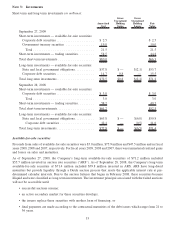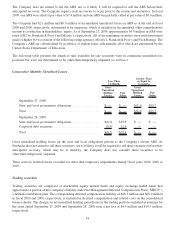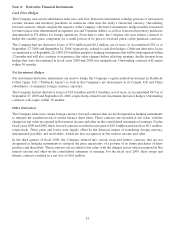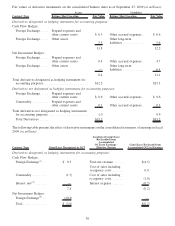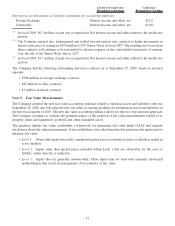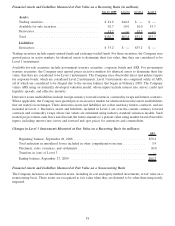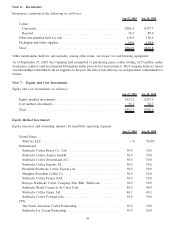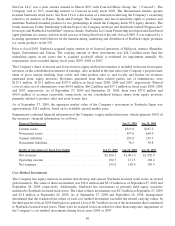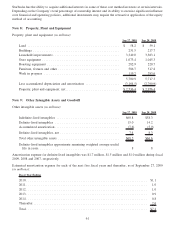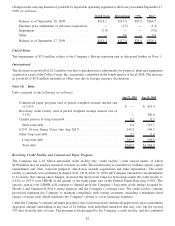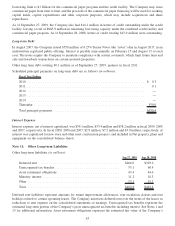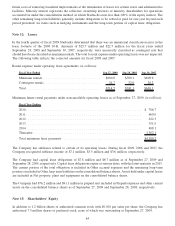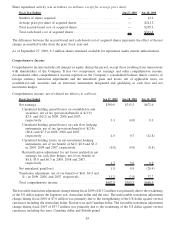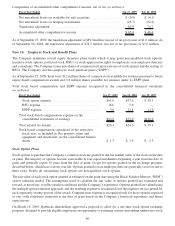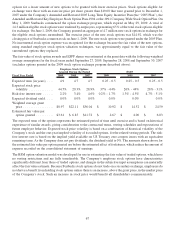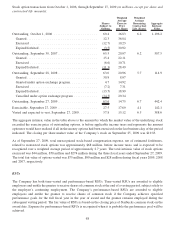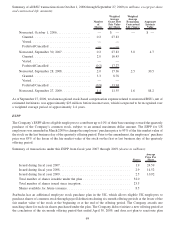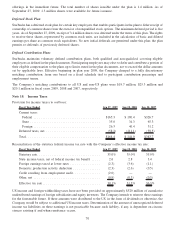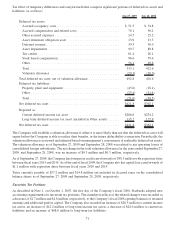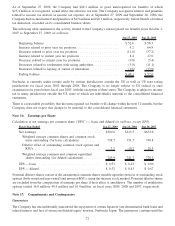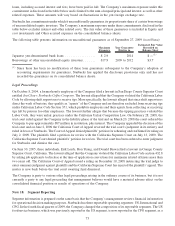Starbucks 2009 Annual Report Download - page 71
Download and view the complete annual report
Please find page 71 of the 2009 Starbucks annual report below. You can navigate through the pages in the report by either clicking on the pages listed below, or by using the keyword search tool below to find specific information within the annual report.
borrowing limit is $1 billion for the commercial paper program and the credit facility. The Company may issue
commercial paper from time to time, and the proceeds of the commercial paper financing will be used for working
capital needs, capital expenditures and other corporate purposes, which may include acquisitions and share
repurchases.
As of September 27, 2009, the Company also had $14.1 million in letters of credit outstanding under the credit
facility, leaving a total of $985.9 million in remaining borrowing capacity under the combined credit facility and
commercial paper program. As of September 28, 2008, letters of credit totaling $15.9 million were outstanding.
Long-term Debt
In August 2007, the Company issued $550 million of 6.25% Senior Notes (the “notes”) due in August 2017, in an
underwritten registered public offering. Interest is payable semi-annually on February 15 and August 15 of each
year. The notes require the Company to maintain compliance with certain covenants, which limit future liens and
sale and leaseback transactions on certain material properties.
Other long term debt, totaling $0.1 million as of September 27, 2009, matures in fiscal 2011.
Scheduled principal payments on long-term debt are as follows (in millions):
Fiscal Year Ending
2010 ................................................................. $ 0.3
2011 ................................................................. 0.1
2012 ................................................................. —
2013 ................................................................. —
2014 ................................................................. —
Thereafter . . . .......................................................... 550.0
Total principal payments .................................................. $550.4
Interest Expense
Interest expense, net of interest capitalized, was $39.1 million, $53.4 million and $38.2 million in fiscal 2009, 2008
and 2007, respectively. In fiscal 2009, 2008 and 2007, $2.9 million, $7.2 million and $3.9 million, respectively, of
interest was capitalized for new store and other asset construction projects, and included in Net property, plant and
equipment on the consolidated balance sheets.
Note 11: Other Long-term Liabilities
Other long-term liabilities (in millions):
Sep 27, 2009 Sep 28, 2008
Deferred rent ............................................. $266.0 $303.9
Unrecognized tax benefits . ................................... 55.1 60.4
Asset retirement obligations .................................. 43.4 44.6
Minority interest ........................................... 11.2 18.3
Other ................................................... 25.1 15.2
Total ................................................... $400.8 $442.4
Deferred rent liabilities represent amounts for tenant improvement allowances, rent escalation clauses and rent
holidays related to certain operating leases. The Company amortizes deferred rent over the terms of the leases as
reductions to rent expense on the consolidated statements of earnings. Unrecognized tax benefits represent the
estimated long-term portion of the Company’s gross unrecognized tax benefits including interest. See Notes 1 and
15 for additional information. Asset retirement obligations represent the estimated fair value of the Company’s
63


